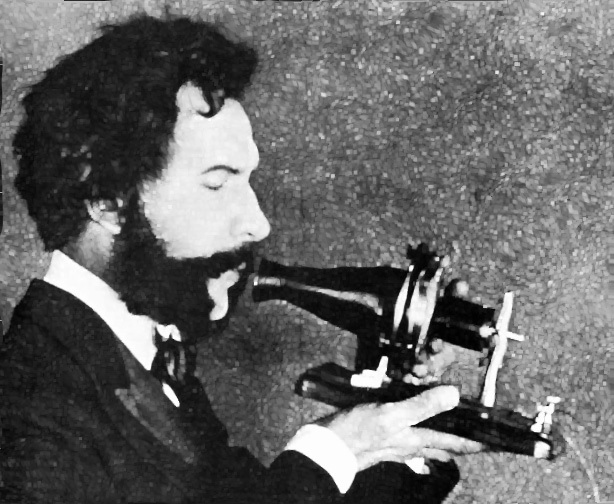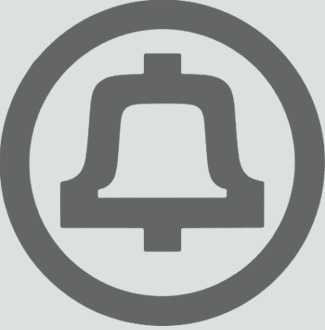Telecom Informer
by The Prophet
Hello, and greetings from the Central Office!
It's moving day, by which I mean another filthy Competitive Local Exchange Carrier (CLEC), hanging on by its fingernails for years, has finally gone out of business and is moving their junky old equipment out. Of course, we were kind enough to provide their customers with uninterrupted service by taking over their accounts. Naturally, we're charging them full price as well, which - surprisingly - is cheaper in some cases than what the CLEC was charging them.
Our wholesale rates to filthy CLECs are based on a fixed percentage discount off our regulated rates.
The discount varies depending upon the level of services we provide on behalf of the CLEC (such as operator services, repair service, whether they use our switch or their own, and even whether they do their own billing or have us do it). The CLEC is always responsible for paying us; if their customer fails to pay, it isn't supposed to be our problem. This particular CLEC, however, sold services without collecting a deposit, below cost, to a lot of marginal and startup businesses who just weren't very good at paying their bills. It turns out this is not a good business model. Over time, the CLEC became not very good at paying our bills, which eventually resulted in a protracted negotiation. They were expert at paying just enough that, under the state tariffs, we had to continue providing them service, but not enough to ever have a profitable business or ever fix anything that was wrong with their network.
Over the years, we have managed to move many of our services out of the "regulated" side of the house to the "unregulated" side. Essentially, any modern broadband, or service delivered via the modern broadband network, is unregulated which means that we aren't required to file rates, comply with tariffs, or provide services anywhere that isn't convenient for us to do so (sorry, but you won't be getting 100 Mbps Internet at your trailer a few miles outside of Tenino - we'll sell you a POTS line and you can try dial-up instead).
Additionally, depending upon the state, traditional wireline services bundled with modern broadband services are also often unregulated, meaning we can undercut CLECs wholesale (get it?). They aren't entitled to share these networks (thanks, FCC!) and they aren't tariffed so they can't receive a discount.
In fact, they don't have access to these services from us at all. So, as more and more telephony has moved to VoIP and is carried over broadband networks, CLECs have found it harder and harder to compete. And for my part, that's just fine because it means job security!
Speaking of tariffed rates, I've been getting a lot of phone calls from a federal prison lately at truly astronomical rates. The Felon is currently incarcerated there, and for some reason, she has my phone number. I must be the only person left who picks up the phone from numbers where Caller ID is blocked. Federal prisons charge the prisoner an FCC-regulated rate of 21 cents per minute for long distance calls, and six cents per minute for local calls. These are rates we haven't seen outside of prisons since the 1990s, but they are actually considered low for jails and prisons where rates can exceed $1 per minute.
In 2013, the FCC was making good progress on cracking down. Two prison phone providers dominate the jail and prison phone market: Global Tel*Link (a.k.a., GTL) and Securus. These companies make the slimiest COCOT provider look legitimate. Many telecommunications contracts negotiated by these providers offered a revenue share with jails and prisons (yes, including privately operated, for-profit prisons). This created an incentive for prison phone companies to charge high fees and per-minute pricing and imposed - in effect - a tax on the families of inmates.
Bowing to political pressure in 2013, after a series of proposed rulemakings, the FCC initially capped rates on interstate calls at 21 cents per minute for prepaid calls, and 25 cents per minute for collect calls.
In 2015, prison phone providers were further restricted to maximum charges on the following ancillary fees:
- Taxes and regulatory fees: Actual tax rate with no markup
- Automated payment fees (via phone system, website, or kiosk): $3.00
- Live agent fee (wherein a live agent processes a payment): $5.95
- Paper bill/statement fee: $2.00
- Third-party financial transaction fee (such as Western Union): Pass-through at actual cost.
The FCC also imposed some rules around creating prepaid accounts. In order to avoid game playing to generate excessive payment fees, prison phone providers weren't allowed to impose a prepaid account maximum below $50.
In 2015, the FCC also set lower maximum rates:
- State or federal prisons: 11 cents/minute
- Jails with 1,000 or more inmates: 14 cents/minute
- Jails with 350-999 inmates: 16 cents/minute
- Jails of up to 349 inmates: 22 cents/minute
The prison phone providers immediately sued, and the court granted a stay of the new rates going into effect. Accordingly, rates were frozen at the 2013 interstate rates.
In 2016, the FCC adjusted its proposed maximum interstate rates, in an attempt to moot the earlier litigation:
- State or federal prisons: 13 cents/minute
- Jails with 1,000 or more inmates: 19 cents/minute
- Jails with 350-999 inmates: 21 cents/minute
- Jails of up to 349 inmates: 31 cents/minute
The effort didn't work. Prison phone providers again immediately sued, and the court again granted a stay of the new rates going into effect. Accordingly, rates remained frozen at the 2013 interstate rates.
As you can see, the FCC has been thwarted at every turn in attempting to regulate price gouging rates and, in addition, they left some big loopholes which prison phone providers have exploited to make more money.
First of all, the cost of intrastate calls wasn't regulated (because the FCC lacks authority over intrastate calls), meaning that the majority of calls from jails and state prisons aren't at FCC-regulated rates. This doesn't mean the rates aren't regulated, but it's left to the states, some of which are better than others.
Additionally, payment fees are allowed to be charged per call, even though you can also set up an account with the prison phone provider (the FCC requires them to allow this) and make a deposit on your account in order to avoid multiple payment fees.
There are some other tricks as well. Many people receiving calls from jails and prisons are living on the economic margins, so they make payments via Western Union, MoneyGram, etc. The payment providers charge a higher fee than normal for payments to prison phone accounts, so they can rebate a portion of the fee to the prison phone provider.
Additionally, some prison phone providers have invented additional services such as voicemail, for which they charge extra, unregulated rates. Finally, services such as video calling (which has replaced in-person visitation at many facilities) cost whatever prison phone providers want to charge.
Kickbacks are rife in the industry, despite the obvious conflict of interest.
The Prison Policy Initiative discovered some common patterns of kickbacks:
- Paying the facility a "signing bonus" for the contract.
- Paying annual or monthly "administrative fees."
- Providing phone-related technology, like cellphone jamming equipment or call recording equipment.
- Providing computer equipment for corrections staff, law libraries, and religious services.
- Paying exorbitant "rent" for the vendor's equipment at a correctional facility.
In addition to this, suspiciously timed campaign donations and donations to police-affiliated organizations have been made by prison phone providers.
And naturally, jails and prisons that were charging commissions (which have fallen out of political favor) have been caught inventing new fees that involve almost exactly the same amount of money previously collected from prison phone providers in the form of commissions.
It is against this backdrop that there is an epidemic of smuggled cell phones found in prisons.
The higher prison phone rates go, it seems the more willing prisoners are to take the risk of being caught with contraband. It doesn't really make much sense to me that prisoners aren't allowed to use mobile phones. Using microcells alongside features already deployed in law enforcement "StingRay" technology, substantially all of the security features currently available from prison phone providers could be applied to mobile phones. However, this wouldn't make jails, prisons, or prison phone providers any money, so the friends and family of prisoners will continue paying - in effect - a "prison tax."
And with that, it's time to rake some leaves.
Have a lovely autumn, and I'll see you again in the winter!

